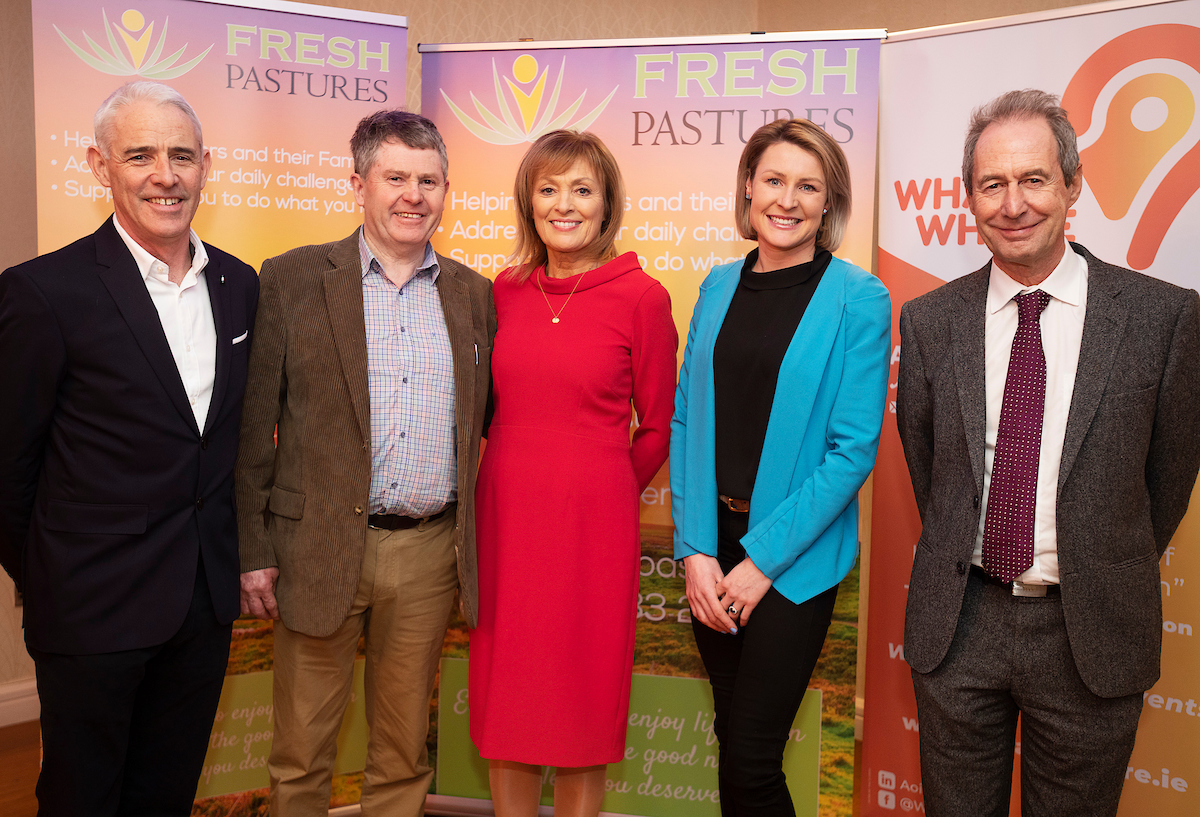Minding mental health should be a priority for farmers at a time when so many farm families are under stress, Dr. Harry Barry, GP and author of nine books on mental health, told a meeting on health and well-being for the next generation in Athlone last week.
Emotional distress caused by burnout and anxiety and mild or moderate depression from work-based stresses is certainly high among farmers at present, he said at the meeting which attracted a turnout of over 100 people, with former nationwide presenter, Mary Kennedy, as MC.
Many people over the age of 60 who never experienced any mental health issues find themselves being affected now, the meeting heard. With so many lifestyle changes impacting on farmers, mental health issues are becoming more prevalent across all age groups, Dr. Barry, now retired from full-time practice, said.
“The most important thing to do for lifestyle changes is to get at least eight hours’ sleep at night. If you do nothing else, this will help anxiety and obesity and prevent the onset of dementia and stress.”
Dr. Barry’s advice for minding mental and general health was to be in bed by 11:00pm and rise at the same time every day. There should not be any phones or devices in the bedroom which should have blackout blinds and be well aired, he said. He recommended that coffee shouldn’t be consumed after midday.
Cognitive behavioural therapy (CBT) can be helpful in improving mental health and had helped some of his patients in just three sessions, he said.
Self care
Dr. Barry asked members of the audience to rate the following in terms of importance: work; children; self; wider family; relationship; and hobbies/social media.
Most people in the audience put children first with work also high up the agenda. However, he said that the correct order should be: self; relationship; children; family; work; and hobbies / social media.
“It is important to be comfortable in your own skin; never let anyone else rate you or try to bring you down.” Decide whether your phone is in charge of you or you are in charge of your phone were among Dr. Barry’s key messages for minding mental health.”
George Graham, a former world sheep shearing champion and farmer from Co. Wexford, who struggled with mental illness for years to the point where he was considering ending his own life, urged people to take the first step in minding their mental health and seek help.
“This is the most important step you will ever make; you can’t take a second step without taking the first.” He described his experience as a dark tunnel from which he thought he would never emerge.
“However, there is light and you will find it; just talk. Whether it is to your GP, a family member or maybe even a stranger, take that first step and talk.
“Also, make sure to take a health check every year. This too is so important; take half an hour out of the year to get this done,” George said.
Mind your neighbours
“There is nothing to be ashamed about. It is a fact of our community at the moment and I ask you all today to mind your neighbours. Do you think they have changed, are they acting strangely? Ask them if they are OK and then the most important thing you can do is listen and never judge.”
Former Teagasc farm adviser Frank Hynes who established JobChanger in 2018 and later the Fresh Pastures programme to help farmers face challenges in the industry such as poor output prices; worries about Brexit; concerns over succession and isolation, organised the meeting.
Frank said he has seen a definite increase in depression among farmers and their families as well as other rural dwellers due to financial stresses, pricing and loneliness.
In the past, when it was summer time, you would get the hay baled, neighbours would come to help stack the bales, have tea and sandwiches together out in the field and have conversations; whereas now the machinery that is used only requires one person.
“Going to the mart was always very social, however, now you are not allowed into areas due to insurance purposes where farmers met previously. Going to the local pub for a few pints is gone. Farmers are now left isolated; not meeting up as much.”
Frank is hosting an initial six-week programme for farmers allowing them to learn how to do more of what they love to do, addressing the challenges to give them more time to do it.
The programme will consist of: meeting to plan requirements of the audience and tailor it to the group; finance and income; health; physical and mental well-being; fitness and nutrition; relationship conflict management; and succession planning.
Qualified speakers will be invited to the different areas, offering support and advice. The full six-week fee is €90 or participants can pay per session at €25.
Also focused on minding mental health was Grace O’Rourke who centred on resilience, having completed RTÉ’s ‘Special Forces: Ultimate Hell Week’.
She applied for ‘Special Forces’ twice and her application was turned down. It was a case of third time lucky and she became the only women to finish the week-long course.
What got her through, Grace said, was taking it every three minutes at a time and asking herself: ‘Will this kill me?’ She said it was definitely a case of mind over body.
John Donnelly of FBD Trust, which sponsored the meeting, said that the challenges farmers and their families face in today’s society can be very daunting and the pressures can be overwhelming.
“Knowing how to handle these issues and more importantly, handling yourself, is so important.”


